In the first paper of the SPARKS Working Paper Series, we delve into the concept of pedagogy, exploring how it has been historically defined and what these definitions imply for pedagogical reform and education systems transformation. This commentary highlights the discussions in SPARKS Working Paper I around definitions and use of the term “pedagogy.” We delve into how cultural and historical traditions have shaped the use and evolution of the term in the three SPARKS Research Policy Collaborative sites—Egypt, India, and Mexico—and emphasize the need for context-specific definitions in policy reforms.
What is pedagogy?
There is little consensus on how to define and utilize the term “pedagogy.” Its use in education policy and reform is often nebulous and divorced from the context of a specific education ecosystem. Searching the web’s many dictionaries, you will find various definitions of pedagogy including “the art, occupation, or practice of teaching,” “the study of methods and activities of teaching,” “the art, science, or profession of teaching,” and “the function or work of a teacher.”
There is no such thing as a neutral education process. In addition to a technical activity, pedagogy is inherently a political, cultural, social, and moral act.
Linguistic origins and evolving meanings
The term “pedagogy” is more often utilized in non-English speaking contexts and cultures around the world. “Pedagogy” originated from the Greek term “paidagogos,” which was used to refer to a slave who guided children to school. While the term has evolved and “pedagogical” and “pedagogy” can more broadly refer to education, teaching, teaching practice, and more, “pedagogue” retains a more negative connotation. Pedagogues are often seen as strict or formal teachers who focus on minor mechanistic details to convey knowledge. Perhaps inspired by a desire to move away from this negative connotation assigned to traditional pedagogical approaches, new or “innovative” pedagogies and pedagogical approaches have been promoted for education systems across the world to create more active learning experiences for students.
Pedagogy in Egypt: Navigating traditions and modern reforms
The SPARKS Egypt Research Policy Collaborative explained that in Arabic, “pedagogy” can be translated as “raising up,” “nurturing,” or “imparting values,” encompassing the transmission of knowledge as well as morals and values for both the material and spiritual worlds. Key Arabic terms related to pedagogy include “tadrees” (the act of teaching and instruction), “tarbia” (nurturing, upbringing, and growth), and “tahdib” (refinement, good manners, and cultural development).
Egyptian educational concepts are shaped by a diverse set of pedagogical practices across different eras and ethnic groups. For example, traditional Islamic education emphasized moral, religious, and spiritual guidance, with teachers serving as knowledge transmitters, role models, and ethical guides. Although traditional systems had their own set of problems, such as equitable access, they did allow for individualized pacing and student choice of teachers based on personal interests. When modern schools emerged, various traditional pedagogical approaches were combined with new approaches; however, a teacher-led model remained prevalent.
The modernization of education in Egypt was propelled by many factors. In the 19th century, Mohamed Ali promoted Egypt as a modern nation-state and developed a civic education system to foster national identity. Additionally, both outside influence from French and British occupation and a general desire amongst the Egyptian population and the intellectual elites of the 19th and 20th centuries to better prepare their citizens for a modernizing world influenced modern conceptions of education. In modern times, international aid networks have strongly influenced the direction of Egyptian education reform with their accompanying discourses, such as the emphasis on the need for new teaching techniques like active learning and technology integration.
Existing challenges in education and the change in political regime after the 2011 Arab Spring inspired a nationwide reform titled Education 2.0 (2018-2030). The reform aims to modernize the Egyptian education system and promote lifelong learning through key components including a multidisciplinary curriculum, technology integration, professional development for teachers and school management, infrastructure, and reformed assessment. However, the reform continues to face hurdles such as teacher buy-in and contextualization for the Egyptian education ecosystem.
The SPARKS Research Policy Collaborative in Egypt is exploring how the Education 2.0 reform impacts Arabic teaching. Through a contextualized understanding of the historical, cultural, and modern understanding of pedagogies, the team aims to offer rich insights to influence the effectiveness of teacher training and professional development policies and programs especially as they relate to the problems of foundational literacy and numeracy in Egypt.
India’s pedagogical path: From gurukuls to modern classrooms
The SPARKS India Research Policy Collaborative shared that linguistically, “pedagogy” translates in many local languages to the “science of teaching.” The Educo Charity in Mumbai similarly defines pedagogy as “the science of teaching and essentially how one teaches a topic.” While linguistic definitions of pedagogy in India may only narrowly describe the methods of teaching, the SPARKS India Research Policy Collaborative added that many see this definition as inclusive of teaching methodologies, curriculum, classroom interactions, formative assessment, teaching methods, and the overall teaching and learning environment.
Because India sits at the crossroads of multiple cultures, traditional pedagogical approaches are based on multiple systems like the gurukul system, the madrasa system, Vedic education, Buddhist Viharas, Sangams, and Ayurvedic schools. The traditional systems usually focused on holistic learning and development and the desire to teach students not just academic subjects but also life skills, morals, and values. Although these older education systems had many problems like lack of universal access and depth of curriculum, the pedagogical approaches of each of these systems were aligned with the overall purposes of education, which prompted a focus on memorization, transmission, close relationships between teachers and students as well as experiential and hands-on teaching in apprenticeships and Ayurvedic schools. In some places, students resided with gurus to receive knowledge and guidance.
The advent of modern schooling in India—and by extension the subcontinent in general—was marked by colonialism and colonial goals. Professor Kamlesh Misra from Rishihood University explained that the British education system squashed ancient pedagogical approaches such as those imagined by the traditional systems that favored questioning, debate and discussion in favor of a more competitive, rigid system of teaching and learning focused on knowledge acquisition and exam preparation.
In the past two decades, policymakers, academics, and others in India have called for a reexamination of colonial pedagogical approaches. The National Curriculum Framework of 2005 emphasized the need for pedagogy to be a tool for achieving the holistic development of all humans. Additionally, the National Education Policy of 2020 has also been critical to efforts to reimagine how pedagogy can become more learner-centered, creative, and holistic. The SPARKS India Research Policy Collaborative is examining the impact of culture, education ecosystems, and learning theories on the conceptualization and implementation of pre-service and in-service education reforms as proposed by the National Education Policy in four Indian States: Uttarakhand, Telangana, Nagaland, and Rajasthan.
Pedagogy in Mexico: Indigenous influences and Catholic colonialism
While in many contexts, “pedagogy” translates to something similar to “science of teaching,” the SPARKS Mexico Research Policy Collaborative shared that “pedagogy” or “pedagogía” in Spanish is used to refer to many different parts of education policy and practice and is not as narrowly defined as in other contexts. The word “pedagogy” in Mexico can encompass aspects such as curriculum, teaching practices, and teacher-student interactions. Also, the term encompasses the study of education processes or guides for understanding people, how they develop, and/or how to understand the teaching and learning processes. In Mexico, as well as in many other Spanish-speaking countries, “pedagogy” is a popular major of study for university students with the International University of La Rioja reporting that 351,777 people in Mexico major in pedagogy.
Spanish colonization and the influence of the Catholic church impacted traditional education systems and pedagogical approaches in Mexico. Historically, more formal education spaces were reserved for the elites and members of the aristocracy. Indigenous education was focused on a cosmovision, or conception of the world centered around nature and the human relationship to the world and was mainly characterized by oral transmission of knowledge. The modernization of education did not occur until after Mexico gained independence in 1821, which prompted the formation of a modern, independent state. In this era, education became more and more secularized.
Cultural diversity in Mexico, much like in India, has posed significant challenges for the modern education system. Education policies and reforms have often exacerbated disparities, particularly among indigenous and rural populations. Although many reforms have aimed to promote intercultural values, their implementation in classrooms has been limited. Teachers and students frequently lack the necessary training, resources, and materials to effectively integrate cultural diversity into the curriculum. Additionally, there has been difficulty in reaching a consensus on a national identity and the purpose of education across different sectors of the population.
To address these challenges, the Nueva Escuela Mexicana (New Mexican Schools) reform was introduced in 2021 and implemented in the 2023-2024 school year. This reform aims to provide a quality, inclusive, and equitable education for all students, emphasizing the acquisition of knowledge and cognitive skills while fostering critical thinking, humanistic values, and community-based competencies. The SPARKS Mexico Research Policy Collaborative is investigating how culture, education ecosystems, and learning theories have influenced the implementation of active pedagogies proposed by the New Mexican Schools policy in three Mexican states: Mexico City, Nuevo León, and Yucatán.
Contextualizing pedagogy
These three cases demonstrate the importance of understanding how culture, local education ecosystems, and historical views on teaching and learning—collectively referred to as Invisible Pedagogical Mindsets—impact the definition and implementation of pedagogy. Especially in an era where innovative pedagogical approaches are widely promoted, it is essential to define “pedagogy” within the local context and consider the Invisible Pedagogical Mindsets to prevent it from becoming just another buzzword in education policies and reforms.
For a more detailed exploration of these topics, see Working Paper I: Invisible Pedagogical Mindsets: Developing a Contextual Understanding of Pedagogy.
Read more about the SPARKS project here.

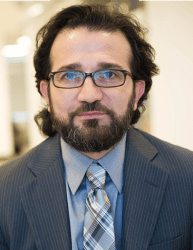
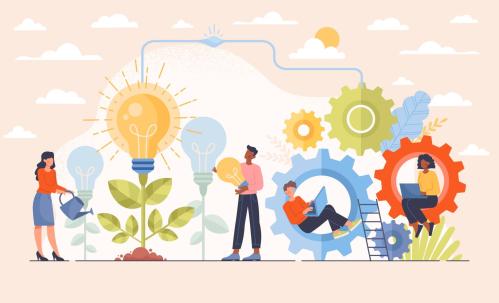

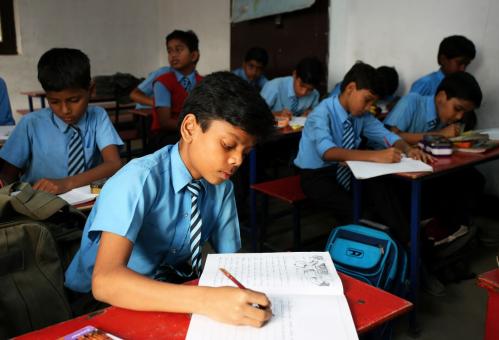
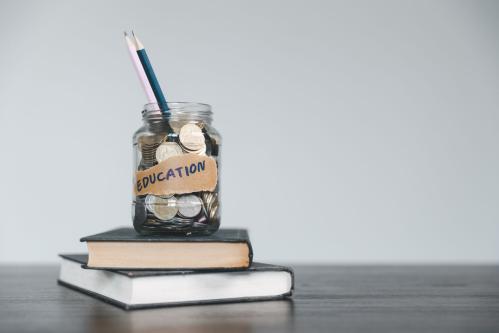

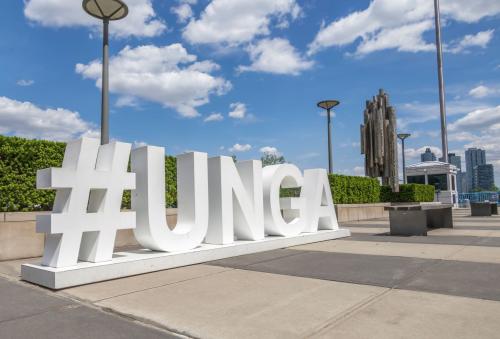
Commentary
Making meaning of pedagogy across cultural contexts
October 4, 2024